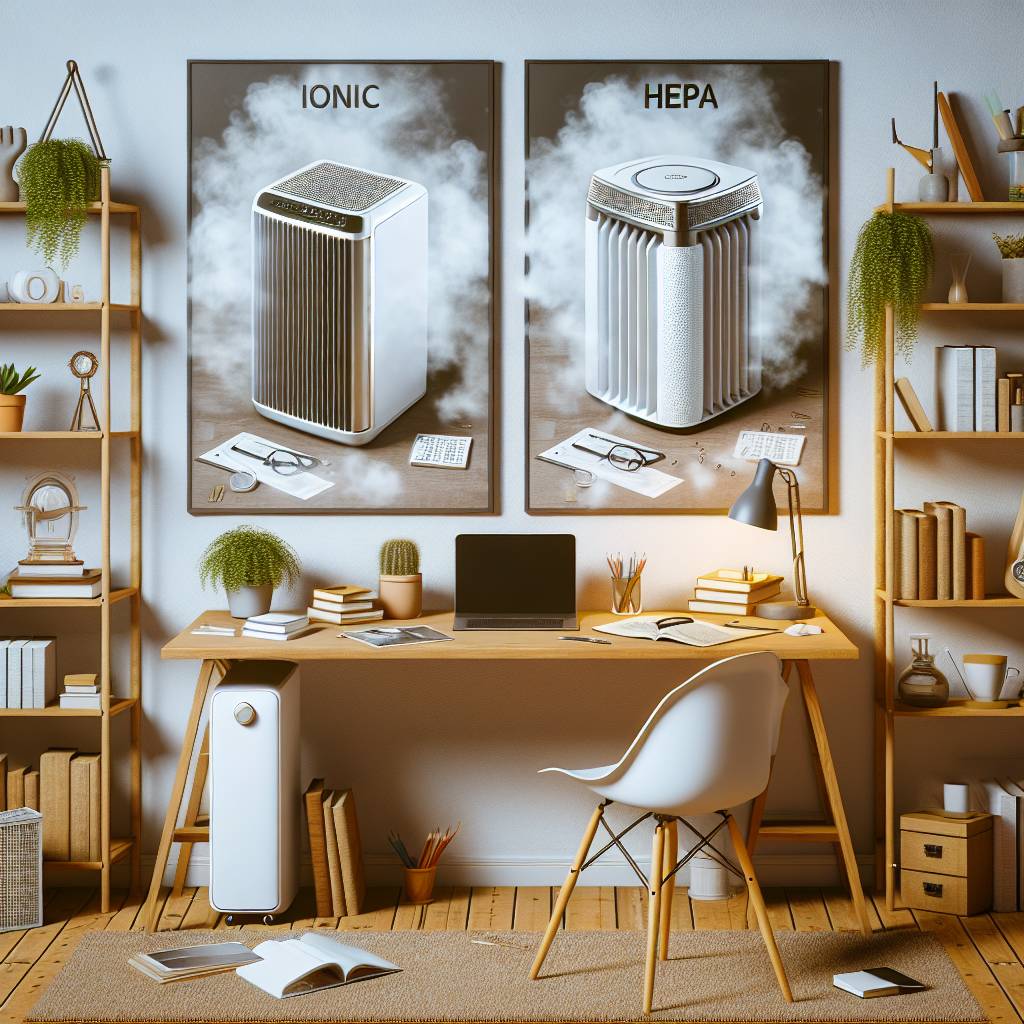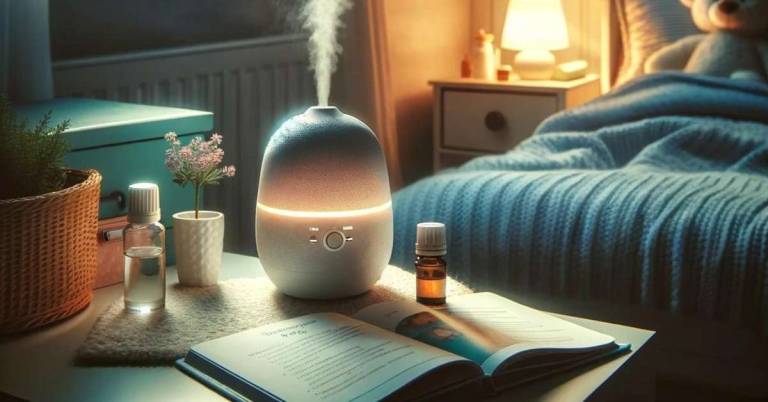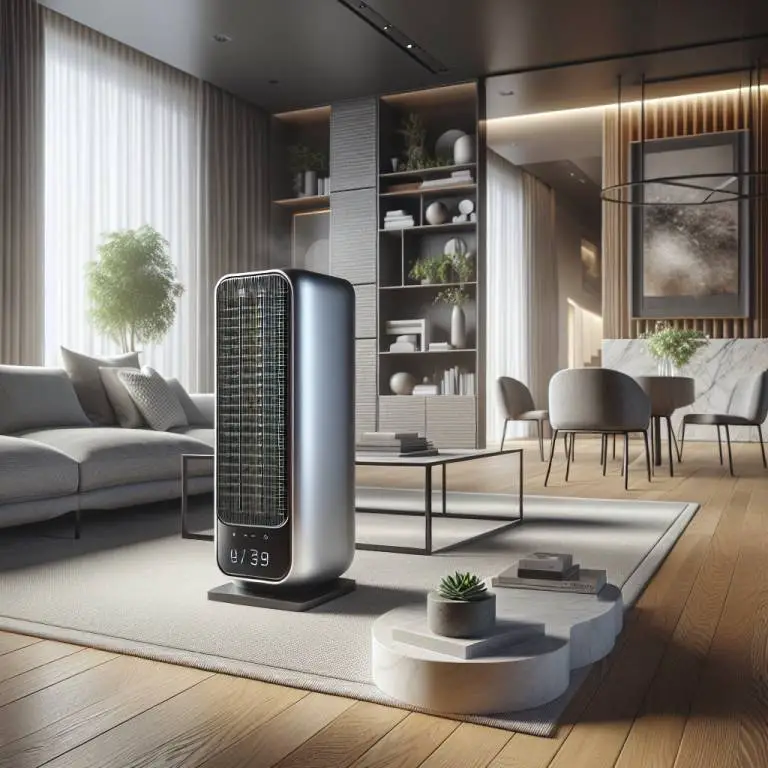Air Purifiers: Ionic Vs. Hepa For Asthma Relief
For reducing asthma symptoms, HEPA air purifiers are often considered better than ionic ones. HEPA filters capture tiny particles, including allergens and dust, which can trigger asthma attacks. Ionic purifiers, while they can remove some pollutants from the air, may produce ozone, a lung irritant. Therefore, HEPA purifiers are generally recommended for people with asthma.

How do air purifiers help with asthma relief?
Air purifiers are a big help for people with asthma. They work by cleaning the air in your home. This means they get rid of things like dust, pollen, and pet dander. These are all triggers that can make asthma worse.
By removing these triggers from the air, air purifiers can make breathing easier for someone with asthma. This can mean fewer asthma attacks and less need for medicine. It’s a way to make the home a safer place to breathe.
Not all air purifiers are the same, though. Some are better at catching different kinds of particles in the air. It’s important to choose one that works well for what you need.
What are the differences between ionic and HEPA air purifiers?
Ionic and HEPA air purifiers do the same job but in different ways. HEPA stands for High Efficiency Particulate Air. A HEPA purifier uses a special filter to trap particles as small as 0.3 microns. This includes most allergens and irritants.
Battling with indoor asthma triggers? Our favorite air purifier for asthma might be the answer. Discover how it cleans the air, providing relief. Check it out now.
Ionic air purifiers work by sending out charged ions into the air. These ions attach to particles like dust or pollen, making them heavy so they fall out of the air. Sometimes, these particles collect on surfaces around the room.
The main difference is how they clean the air. HEPA filters physically catch particles, while ionic purifiers make particles fall from the air without capturing them directly.
How do HEPA air purifiers work to reduce asthma symptoms?
HEPA air purifiers reduce asthma symptoms by trapping airborne allergens and irritants that can trigger attacks. The filter catches tiny particles that we can’t even see, including dust mites, pollen, and pet dander.
This means that when someone with asthma breathes in the air cleaned by a HEPA purifier, they’re not breathing in those triggers. Over time, this can lead to fewer asthma symptoms like coughing or wheezing.
It’s important to keep these filters clean or replace them regularly for them to work well. A dirty filter won’t trap as many particles, which could mean more asthma triggers in the home.
What are the benefits of using an ionic air purifier for asthma sufferers?
Ionic air purifiers offer several benefits for people with asthma. One big benefit is their ability to remove very fine particles from the air. This includes things too small for some other types of filters to catch.
Another advantage is that some models don’t need regular filter changes like HEPA filters do. This can save time and money in the long run since you don’t have to buy new filters all the time.
However, it’s worth noting that ionic purifiers might leave some particles on surfaces around your home since they fall out of the air instead of being trapped in a filter. Regular cleaning is necessary to keep everything really clean.
| Feature | HEPA Air Purifiers | Ionic Air Purifiers |
|---|---|---|
| Operation Principle | Uses a physical filter to capture particles. | Emits ions to attach to particles, causing them to settle out of the air. |
| Effectiveness Against Particles | Highly effective at capturing particles as small as 0.3 microns. | Varies; can be effective but may not capture smaller particles as efficiently. |
| Maintenance | Requires regular filter replacement. | Low maintenance, but may need occasional cleaning of metal plates. |
| Cost Over Time | Higher initial cost plus the cost of replacement filters. | Generally lower initial cost with minimal ongoing expenses. |
| Sound Level | Can vary; some models are designed to be very quiet. | Usually very quiet operation. |
| Asthma Relief | Highly effective at removing allergens and irritants from the air. | May not be as effective at removing all asthma triggers, especially smaller particles. |
| Ozone Production | Does not produce ozone. | Some models may produce small amounts of ozone. |
Which is more effective for asthma relief: Ionic or HEPA air purifiers?
When it comes to easing asthma symptoms, both ionic and HEPA air purifiers have their benefits. However, HEPA air purifiers are often seen as more effective. This is because they can trap very small particles, including pollen, dust mites, and pet dander, which are common triggers for asthma attacks.
On the other hand, ionic air purifiers work by sending out electrically charged ions into the air that attach to pollutants, making them heavier and causing them to fall from the air. While this method can reduce airborne contaminants, it may not be as efficient in capturing smaller particles compared to HEPA filters.
Are there any side effects associated with using ionic air purifiers for asthma?
Yes, there are some potential side effects when using ionic air purifiers, especially for individuals with asthma. One of the main concerns is that these devices can produce ozone as a by-product. Ozone is a lung irritant that can lead to worsening asthma symptoms or trigger an asthma attack in sensitive individuals.
Additionally, since ionic air purifiers work by making pollutants heavier so they fall out of the air, these particles can settle on surfaces around the home. This means they could potentially be stirred back into the air and inhaled if not cleaned up properly.
Can using a HEPA air purifier improve overall indoor air quality for asthma patients?
Absolutely. Using a HEPA air purifier can significantly improve indoor air quality for those with asthma. By effectively trapping airborne allergens and irritants such as pollen, dust mites, pet dander, and mold spores, these devices help create a cleaner breathing environment. This reduction in airborne contaminants can lead to fewer asthma symptoms and triggers indoors.
Beyond just aiding those with asthma, improving indoor air quality through the use of HEPA filters benefits everyone in the household by reducing the overall exposure to harmful particles. Cleaner indoor air means healthier lungs and better respiratory health for all occupants.
Final Thoughts
In conclusion, while both ionic and HEPA air purifiers offer benefits for individuals with asthma, HEPA filters tend to be more effective at improving symptoms due to their ability to capture smaller particles more efficiently. It’s important for users to weigh the potential side effects of each type of purifier against its benefits.
Ultimately, choosing the right air purifier depends on individual needs and sensitivities. For those concerned about indoor air quality and its impact on asthma symptoms, consulting with a healthcare provider or an allergist might provide additional guidance tailored to specific health conditions and environments.






